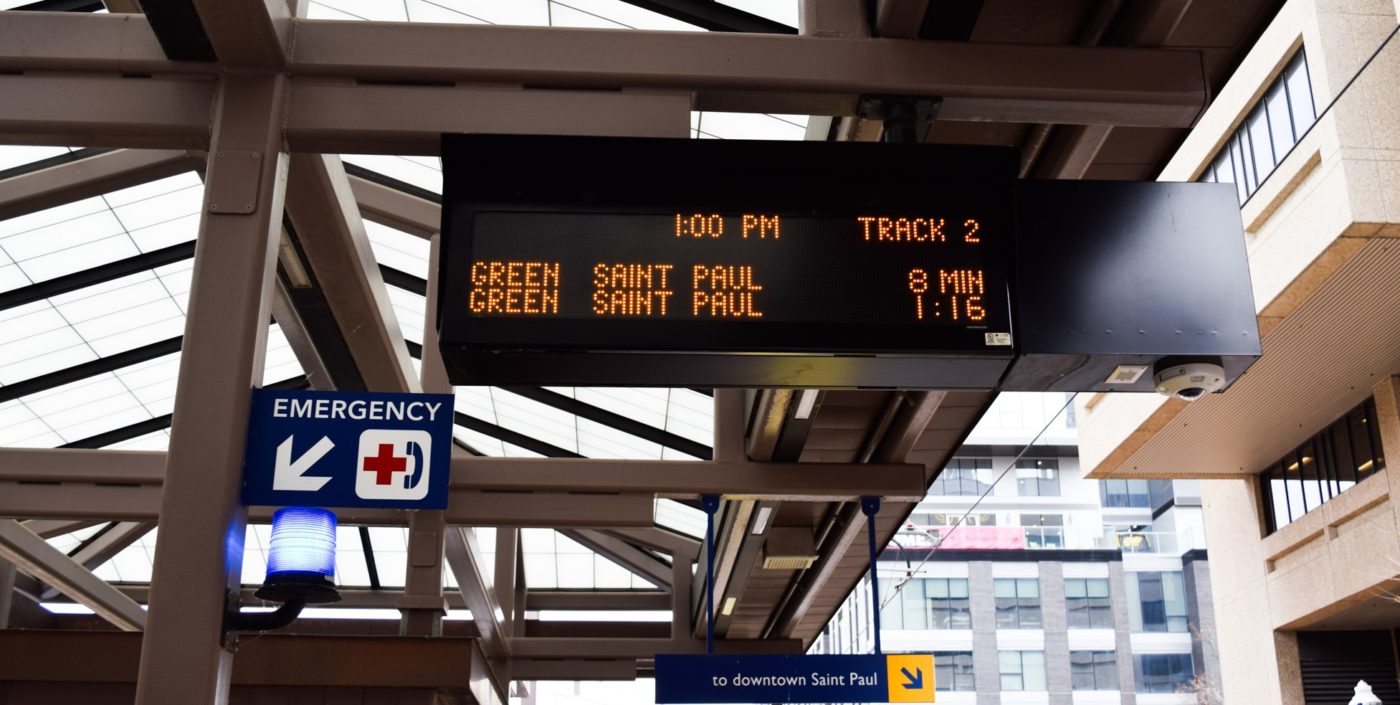Downtown Saint Paul Commuter Survey Results and the Future of Commuting
A lot has changed over the course of the pandemic, but what about how we get around? What should cities and employers consider about commuting as they look to the future?
Move Minnesota recently partnered with the City of Saint Paul to design and implement a Downtown Saint Paul Commuter Survey. The goal of this 2021 survey was to help the City develop modern policies and projects that support evolving transportation needs, by better understanding changing commuting patterns, specifically those caused by the COVID-19 pandemic.
This survey will be administered again in 2022 to get longitudinal data and to keep up with evolving return-to-office plans. Noting that this survey was intended for employees working for major Saint Paul employers and that many downtown Saint Paul workers likely did not see this survey, let’s talk about what we learned as well as our policy recommendations.
Key Takeaways
Both cities and employers have an important role to play in shaping the future of commuting in ways that impact our workforce, our climate, and our communities. And as employees return to the office, flexibility is important both in work schedules and transportation options. Here are some strategies to move forward as a transit-centered community that are informed from survey responses.
- Promote telework work policies that allow flexibility and decrease overall commute travel needed
- Provide transit assistance
- 41% of respondents replied that an employer-provided transit pass would help them to get to work by transit. The My Fare Card List is a flexible option for employers who are seeing employees in the office less frequently, allowing employers to refill Go-To Cards as much or as little as their employees need on a monthly basis.
- Transition monthly parking contracts to a daily market rate
- 62% of respondents said they would be willing to pay a daily parking fee.
- 70% of employees with monthly parking contracts said they would be willing to switch to a daily contract.
- One of the biggest areas of opportunity for changing transportation behavior is transitioning parking fees from monthly and yearly contracts to a daily market rate. By switching parking fees to a daily model, you give commuters choice and flexibility for transportation modes with each trip.
- Support bicycle infrastructure
- When asked what would assist commuters in getting to their workplace by bicycle, the most popular response was “increased bike paths and infrastructure.”
- 36% of employees who responded said that they would be willing to try biking to their downtown workplace.
Other Relevant Survey Findings
- Prior to the pandemic 50% of employees used sustainable transportation methods.
- Approximately one third of respondents took transit before COVID-19 either from their homes or from a Park and Ride or from a combination of modes.
- Most respondents do not plan on altering their mode choice upon a return to the office.
- There is a 4% projected increase of driving alone, a 5% decrease in transit, and a 2% increase in active transportation.
- When asked what transportation options commuters were willing to try, we found them to be open minded with 62% willing to try transit, 61% working remote, and 36% biking.
- Only 12% of commuters said they would not be willing to try a different commute mode for getting to their downtown workplace.
Recommendations for Strategies to Reach the City’s Goals
All recommendations are based on the goals set out by the Saint Paul Climate Action Plan and the Saint Paul 2040 Plan. Both of these plans identify transportation emissions as one of the largest sources of carbon emissions in Saint Paul. Both plans call for the reduction of vehicle miles traveled by 40% by the year 2040. These recommendations are further informed by changing travel patterns caused by the Covid-19 pandemic and the responses from Saint Paul employees to this survey.
Key Recommendations:
- Support more frequent transit service to downtown Saint Paul
- Support bicycle infrastructure projects that connect to downtown Saint Paul
- Support policies to transition parking lots to a daily market rate
- Promote HourCar and Evie Carshare
Employers can be encouraged to:
- Provide transit assistance to employees
- Transition monthly parking contracts to a daily market rate
- Provide workplace bike parking and showers
- Provide an active transportation commuter wellness program
- Promote telework work policies that allow flexibility and decrease overall commute travel needed
Pandemic-related shifts in commuting and the need for proactive approaches to sustainable transportation and climate-resilient cities extend far beyond downtown Saint Paul. We hope these insights and recommendations inspire action locally as well as in many other workplaces and communities!
Learn more about Move Minnesota’s ongoing work with Saint Paul employers and properties.

